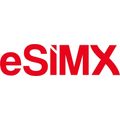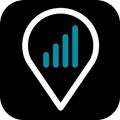MobileSIM provides eSIM data plans for travel in over 190 countries and regions. Offering extensive coverage - country data plans, regional data packs, or global data plans, you can rest assured about avoiding exorbitant roaming charges. Save money on every trip and benefit from affordable data packs effortlessly. With over 20 years of experience in telecom, we deliver security and reliability!

MobileSIM provides eSIM data plans for travel in over 190 countries and regions. Offering extensive coverage - country data plans, regional data packs, or global data plans, you can rest assured about avoiding exorbitant roaming charges. Save money on every trip and benefit from affordable data packs effortlessly. With over 20 years of experience in telecom, we deliver security and reliability!
MobileSIM eSIM Data Plans for Romania
Frequently Asked Questions
Does MobileSIM offer unlimited data eSIM for Romania?
MobileSIM does not provide a truly unlimited high‑speed eSIM plan for Romania. The plans that include “Unlimited” in their names are actually capped at 3GB of data per day, after which the connection drops to a reduced speed of 1000 kbps. Travelers who need a larger data allowance can choose a fixed‑data plan instead; for example, a 20 GB plan valid for 30 days costs $28 and gives full speed throughout its validity.
Does MobileSIM offer Romania eSIM with phone number and SMS?
MobileSIM does not provide a Romania eSIM plan that includes a phone number or SMS capability. The publisher only offers data‑only eSIMs for the country, with no inbound or outbound voice or text services included.
Travelers who need to stay in touch can still use data‑based voice and messaging applications such as WhatsApp, Telegram, or iMessage over the MobileSIM data connection. These apps allow calls and text messages to be sent without a local Romanian phone number.
How many data plans does MobileSIM offer for Romania?
MobileSIM currently lists 12 single‑country plans and 19 multi‑country plans available for Romania. The plans are split into two primary types: daily data cap plans provide a consistent amount of data each day, while fixed data cap plans give a one‑time total data allowance that can be used over the validity period. Prices for the available packages range from roughly $1.00 up to $99.00, and the data caps span from 500 MB to 50 GB depending on the chosen plan.
Summarized by Gen AI. Last updated:




